How many of these numbers do you know?
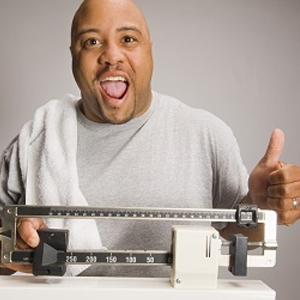
BMI is an easy height and weight calculation to help determine whether you’re at a healthy or unhealthy weight. In general, the higher your BMI, the greater your risk of developing health problems.
✓ I know my BMI. CALCULATE YOUR BMI
Talk to your healthcare provider about your BMI number. They can further evaluate your health status and potential risks.
✓ I know my BMI. CALCULATE YOUR BMI
Talk to your healthcare provider about your BMI number. They can further evaluate your health status and potential risks.
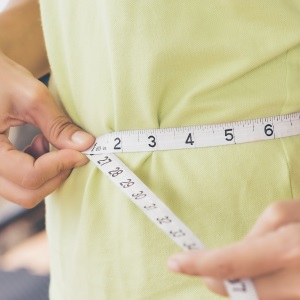
Your WAISTLINE may be telling you that you have a higher risk for heart disease and Type 2 diabetes if you are:
- A man whose waist circumference is >40 inches
- A non-pregnant woman whose waist circumference is >35 inches
✓ I know my waist circumference. CORRECT WAY TO MEASURE YOUR WAIST
Talk to your healthcare provider about your measurement. They can further evaluate your health status and potential risks.
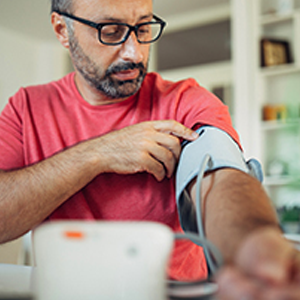
HIGH BLOOD PRESSURE usually has no warning signs or symptoms, and many people don’t know they have it. The best way to diagnose high blood pressure is to have your blood pressure measured.
A normal blood pressure level is less than 120/80 mmHg.
✓ I know my blood pressure numbers. HOW TO SELF-MEASURE BLOOD PRESSURE
Talk to your healthcare provider about how often you should check your blood pressure.
A normal blood pressure level is less than 120/80 mmHg.
✓ I know my blood pressure numbers. HOW TO SELF-MEASURE BLOOD PRESSURE
Talk to your healthcare provider about how often you should check your blood pressure.
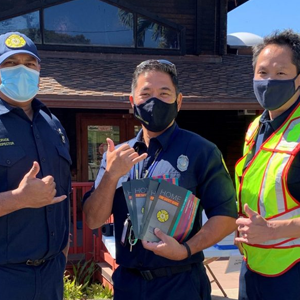
HEART DISEASE can be prevented! Check your blood pressure regularly.
If you don’t have an at-home blood pressure monitor, visit your local fire station to have it checked for free.
If your blood pressure is 140/90 or higher, make sure you visit a doctor or healthcare professional as soon as possible.
If you don’t have an at-home blood pressure monitor, visit your local fire station to have it checked for free.
If your blood pressure is 140/90 or higher, make sure you visit a doctor or healthcare professional as soon as possible.

TYPE 2 DIABETES can be delayed or prevented. The American Diabetes Association Risk Test can help you assess your risk level.
✓ I know my risk score for diabetes. TAKE THE 60 SECOND RISK TEST
If you’re at high risk or feel like you might have diabetes, get a blood test to find out if you have diabetes or prediabetes.
Maintain a healthy weight, get regular exercise and reduce stress to delay or prevent Type 2 diabetes. The CDC guide, On Your Way to Preventing Type 2 Diabetes can help you get started. GET THE GUIDE
✓ I know my risk score for diabetes. TAKE THE 60 SECOND RISK TEST
If you’re at high risk or feel like you might have diabetes, get a blood test to find out if you have diabetes or prediabetes.
Maintain a healthy weight, get regular exercise and reduce stress to delay or prevent Type 2 diabetes. The CDC guide, On Your Way to Preventing Type 2 Diabetes can help you get started. GET THE GUIDE
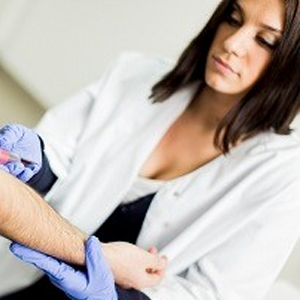
HIGH CHOLESTEROL usually has no symptoms. That’s why it’s important to have your doctor check your cholesterol levels with a simple blood test. This information helps determine your risk for heart disease or stroke.
Most healthy adults should have their cholesterol checked every 4 to 6 years. Others already diagnosed with high cholesterol or have a family history of the condition, may need to have their cholesterol checked more often.
✓ I know my cholesterol numbers. DESIRABLE CHOLESTEROL LEVELS
Talk to your healthcare provider about your health history and how often you need to have your cholesterol checked.
Most healthy adults should have their cholesterol checked every 4 to 6 years. Others already diagnosed with high cholesterol or have a family history of the condition, may need to have their cholesterol checked more often.
✓ I know my cholesterol numbers. DESIRABLE CHOLESTEROL LEVELS
Talk to your healthcare provider about your health history and how often you need to have your cholesterol checked.
